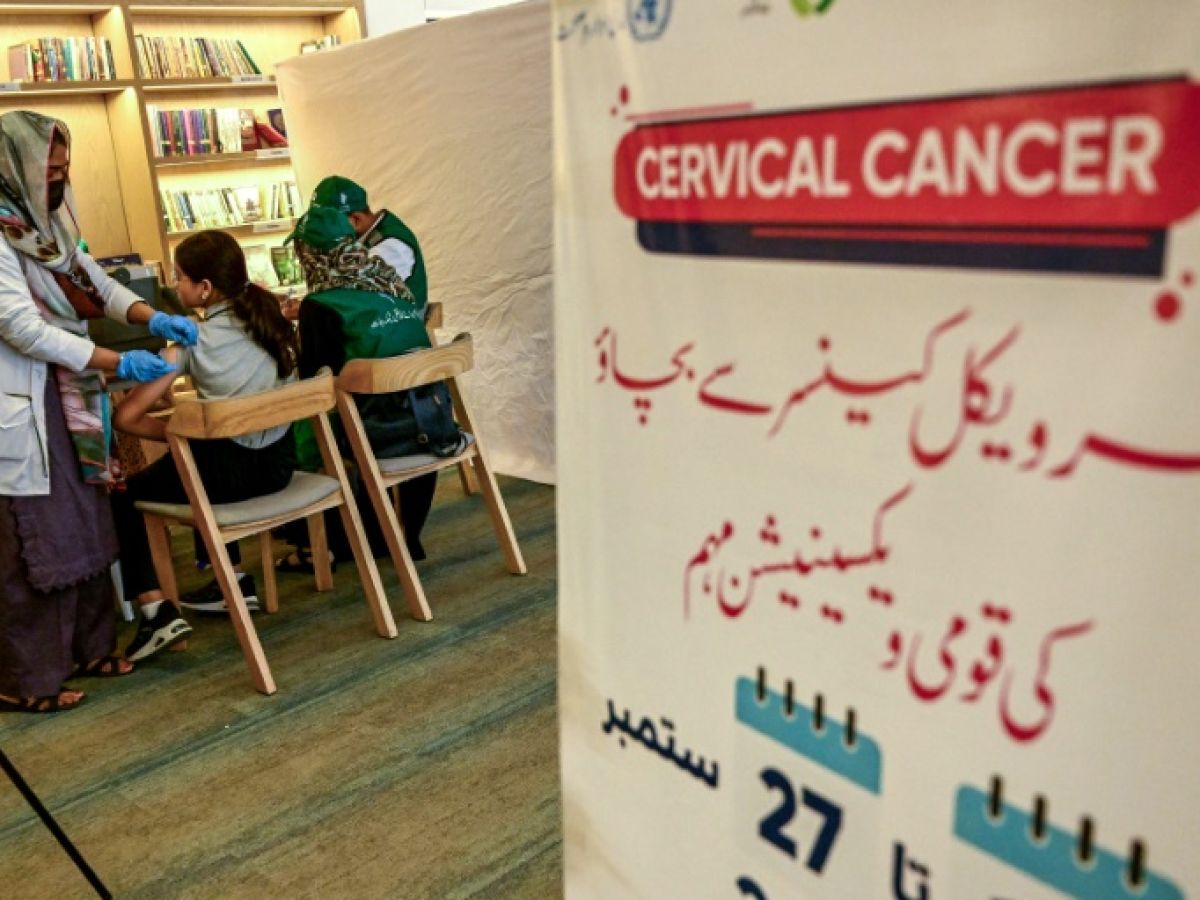In Pakistan, where vaccination is widely distrusted, the latest campaign against the human papillomavirus (HPV) has only achieved half its goal, undermined by a flood of misinformation that has discouraged parents and teenage girls.
In Pakistan's highly conservative society, the latest anti-HPV campaign, targeting young girls to prevent infections caused by sexually transmitted strains of the human papillomavirus (HPV), responsible for more than 90% of cervical cancer cases, has been the subject of numerous unfounded rumors.
In Karachi, the large southern city, Maryam Bibi, 30, refused to have her three daughters vaccinated.
"My husband forbade me to do it because people say the vaccine will make them sterile and is used for population control," she told AFP, citing a persistent urban myth that vaccines are a Western plot to reduce Muslim populations.
For her part, Humna Saleem doesn't see the point: "Cervical cancer is terrible, but why not tell our boys to be faithful instead of telling our girls to get vaccinated?" asks this 42-year-old mother who lives in Lahore, a large city on the border with India.

For many believe that simply having a large number of sexual partners leads to sexually transmitted infections, in a country where extramarital relationships are illegal. Others argue that the injection causes hormonal dysfunction and increases the libido of those vaccinated.
"Some people refused the vaccine, slammed the door in our faces, or even lied about their daughter's age," Ambreen Zehra, a vaccinator in Karachi, told AFP.
During the two-week campaign, which ended Saturday, authorities hoped to vaccinate 11 million Pakistani women aged 9 to 14. But only six million doses have been administered, a health ministry official reported on condition of anonymity.
"Many young girls of age to be vaccinated were unable to be vaccinated, but we will ensure that doses remain available for them even after the end of the campaign," assures the same source.
– Generalized mistrust –
In Pakistan, confidence in vaccines has been shaken by a fake vaccination campaign by the CIA to locate al-Qaeda leader and 9/11 mastermind Osama bin Laden, who was killed in 2011 in the north of the country.

The mission of vaccinators is not without risk: caregivers and the police officers who protect them are regularly the target of attacks.
Faced with these obstacles, polio, which is now endemic only in Pakistan and Afghanistan, has seen a resurgence in cases, with 27 Pakistani children infected in 2025. This is significantly higher than in the previous three years, when Pakistan believed it was almost done with the disease.
Tirelessly, vaccinators try to respond to misinformation, going door to door or targeting schools, particularly for the HPV vaccine, which is primarily aimed at teenage girls.

In Pakistan, cervical cancer is devastating, with approximately 5,000 cases diagnosed each year according to UNICEF, a figure likely underestimated. Two-thirds of women with the disease succumb to the disease.
Despite this, parents remain resistant. In a school in Rawalpindi, Islamabad's twin city where the HPV vaccination was scheduled to take place, no doses were administered due to lack of consent, a teacher told AFP on condition of anonymity, assuring that many rural schools have suffered the same fate.
– Lead by example –
In the capital Islamabad, too, the campaign has met with successive refusals.

“On the first day, we reached 29% of our target, a disappointing but passable number,” says Syeda Rashida Batool, a local leader who launched the campaign by vaccinating her daughter.
"But that same evening, videos circulated online and that number dropped," she regrets.
Viral images, for example, show young schoolgirls doubled over in pain, with internet users claiming they were victims of vaccine side effects.
In reality, this video has been decontextualized, and shows a classroom where tear gas had been launched during a demonstration.
The HPV vaccine, which has been administered for years in more than 150 countries, is considered safe by the World Health Organization and has been scientifically proven to be effective in preventing cervical cancer.
But far from being confined to social networks, these unfounded rumors are also relayed by political leaders.

Last week, Rashid Mehmood Soomro, head of a right-wing religious party in Karachi, claimed that the vaccine, administered voluntarily, was nevertheless "imposed on girls" by the government and "rendered them sterile."
So, in an attempt to quell the rumors, Pakistani Health Minister Syed Mustafa Kamal called on the media to film his teenage daughter's vaccination.
"In 30 years of my career, I have never made my family life public, but my daughter, like the daughters of the nation, are dear to me, so it was necessary," he assured.
zz-stm-sma-nz-ecl/jma/roc
